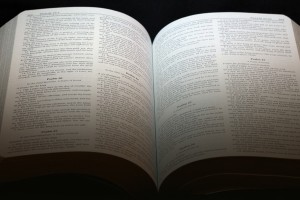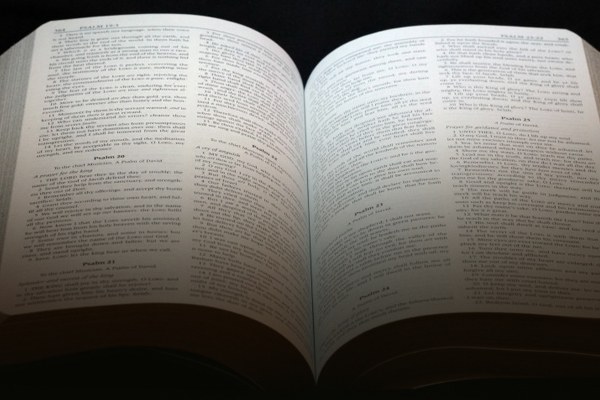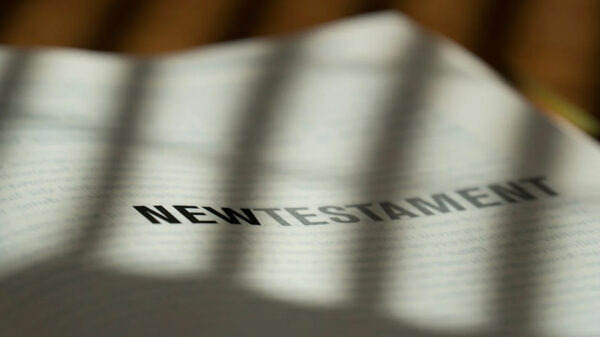
In Cold-Case Christianity, I begin by providing readers with ten principles of cold-case investigations. The fourth chapter is simply entitled, “Test Your Witnesses”. In this chapter, I offer the template that is used in the State of California by judges who instruct juries in criminal trials. It includes a series of fourteen questions that jurors can ask themselves as they examine the reliability of any witness on the stand. The important probative questions can be divided into four large categories. In essence, it’s important to find out if an eyewitness was actually present at the time of the crime, can be corroborated by outside evidence, has been accurate and consistent in the past, and is free of bias that might prejudice his or her testimony or motivate him or her to tell a lie.
I’m not foolish enough to suggest that every witness should be trusted without vetting. Heck, I don’t even trust my own teenagers without vetting! But once these four areas have been examined and an eyewitness is found to pass the test in these important categories, it’s reasonable to accept their testimony as reliable. In fact, if an eyewitness measures up in these four areas, Jurors have a duty to assume the best in them until they have a reason to do otherwise. Section 105 of the Judicial Council of California Criminal Jury Instruction (2006) instructs jurors to set aside “any bias or prejudice [they] may have,” including any based on the witness’s gender, race, religion, or national origin. In addition, jurors are instructed: “If the evidence establishes that a witness’s character for truthfulness has not been discussed among the people who know him or her, you may conclude from the lack of discussion that the witness’s character for truthfulness is good”. In essence, witnesses are to be trusted unless you’ve got a specific reason not to.
In the second section of Cold-Case Christianity, I spend four chapters looking at the gospel eyewitness accounts and testing them with the template used by jurors in criminal trials. It’s true that there are occasions when the testimony of a false witness can slip through a trial because the witness is not properly vetted. I try not to let that happen with the gospel writers. It’s critical that we test witnesses before accepting what they say, and I take a rather vigorous approach with this courtroom template. Many who’ve now read the book (it was just released last week), tell me that this second section of the book was incredibly helpful to them. I am hopeful objective readers will see how well the gospel writers measure up. Yes, witnesses can be unreliable. That’s why I wrote a book about how we can determine who is to be trusted and who is not. I don’t trust the gospel writers simply because they are eyewitnesses. I trust them because they can be vetted and determined to be reliable eyewitnesses.

J. Warner Wallace is a Dateline featured Cold-Case Detective, Senior Fellow at the Colson Center for Christian Worldview, Adj. Professor of Christian Apologetics at Talbot School of Theology, Biola University, author of Cold-Case Christianity, God’s Crime Scene, and Forensic Faith, and creator of the Case Makers Academy for kids.
Subscribe to J. Warner’s Daily Email
J. Warner Wallace is a Dateline featured cold-case homicide detective, popular national speaker and best-selling author. He continues to consult on cold-case investigations while serving as a Senior Fellow at the Colson Center for Christian Worldview. He is also an Adj. Professor of Christian Apologetics at Talbot School of Theology, Biola University, and a faculty member at Summit Ministries. He holds a BA in Design (from CSULB), an MA in Architecture (from UCLA), and an MA in Theological Studies (from Gateway Seminary).









































Pingback: Why Should We Trust the Gospels When Eyewitness Testimony Is So Unreliable? by J. Warner Wallace | Current Events in Light of the Kingdom of God
Pingback: Historical Epistemology: What Can We Know About Jesus? « Ratio Christi- At The Ohio State University
Pingback: What Can We Know About Jesus? Resources on the Historical Jesus and Historicity of the New Testament « Ratio Christi- At The Ohio State University
Pingback: google
Pingback: Does the "Unreasonable" Nature of the Virgin Conception Invalidate the Story of Jesus? | Cold Case Christianity
Pingback: Does the “Unreasonable” Nature of the Virgin Conception Invalidate the Story of Jesus? | Apologetics ForumApologetics Forum
Pingback: A Brief Sample of Old Testament Archaeological Corroboration - Cross Examined - Christian Apologetics | Frank Turek
Pingback: A Brief Sample of Old Testament Archaeological Corroboration | Cold Case Christianity
Pingback: A Brief Sample of Old Testament Archaeological Corroboration | Apologetics ForumApologetics Forum
Pingback: Why Didn’t Jesus Reveal Scientific Facts to Demonstrate His Deity? | Christian Apologetics
Pingback: Real Clear Apologetics | Two Hidden Science Facts in the Passion Week
Pingback: Two Hidden Science Facts in the Passion Week | Apologetics ForumApologetics Forum
Pingback: Why Didn’t Jesus Reveal Scientific Facts to Demonstrate His Deity? | Cold Case Christianity
Pingback: Handling an Objection: We Can’t Trust Eyewitness Testimony! | THINKAPOLOGETICS.COM
Pingback: “What does it mean to say the New Testament is ‘Historically Reliable?’” – THINKAPOLOGETICS.COM
Pingback: How Ancient Eyewitness Testimony Became the New Testament Gospel Record - The Poached Egg Christian Worldview and Apologetics Network
Pingback: Why Should We Trust the Gospels When Eyewitness Testimony Is So Unreliable? | Cold Case Christianity – Elders Scrolls
Pingback: Handling an Objection: We Can’t Trust Eyewitness Testimony! – Tabernacle of David